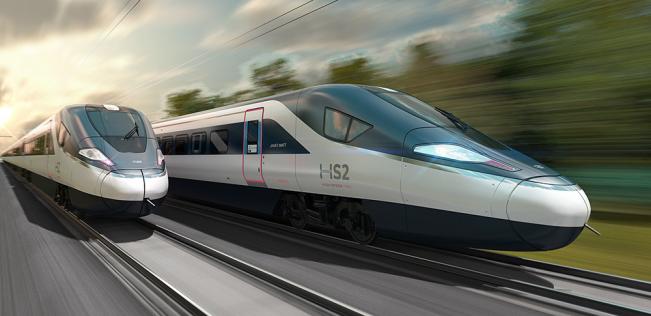
Doubts over the future of the HS2 Rail Project have been raised by the well -publicised Department of Transport announcement that a full review of the project is to take place. Douglas Oakervee is set to report this autumn and will be considering, among other things, benefits and impacts, affordability and efficiency, deliverability and scope, its phasing, including its relationship with Northern Powerhouse Rail.
https://www.gov.uk/government/news/government-announces-independent-review-into-hs2-programme
Douglas Oakervee, a Civil Engineer, has a long career in construction behind him with Laing O’Rourke, Cross Rail, Hong Kong Airport and until 2013 as Chairman of HS2 itself among others. At 78, he has reportedly come out of retirement more times than Frank Sinatra, but with that background must be considered partisan to the project.
Meanwhile some HS2 preparatory works continue and the pause has given the opportunity for variations in the proposals to be suggested. Midlands Connects has submitted a business case to extend HS2 from Birmingham to Nottingham and from Bradford to Leeds via Leicester.
The well-established Northern Powerhouse Rail Group will be looking to more firmly establish their involvement. Their proposals designed to link to HS2 from Crewe and Manchester include new lines to Liverpool and Leeds with upgrades across to Sheffield and north to Newcastle. NPRG are in no doubt that for the north it’s not either HS2 or NPR, it’s both. NPR strongly contend that that historic underinvestment in strategic transport infrastructure outside London is a trend that must be reversed if all communities are to be levelled-up and regions rebalanced.
https://transportforthenorth.com/northern-powerhouse-rail/
Newcastle City Council, with maybe a hint of bias, responded with a suggestion that the project might be more viable built in reverse from Newcastle south. There might be some logic in the suggestion.
The HS2 project has been beset by scandals including contractor conflicts and the cutting of other railway projects. £7.4 billion has reportedly been spent already and the forecasted total cost upped to £81-86 billion. £1.25 billion has been spent on London property alone; it is in property acquisition and land compensation that some of the holes in the budget have developed.
The DOT have glibly responded along the lines that changes to the cost of property could be expected. It is though not unusual for property issues to be the poor relation in infrastructure projects. The tendency for project chiefs to try and apply the straight line progress charts to property acquisition doesn’t work as well compared to civil engineering operations. Valuation is more of an art than a science and human nature can often cause all manner of delay in property acquisition.
The property poor relation approach seems to have dogged these early stages of HS2 with an understaffed property department probably unfairly bearing the brunt of the blame. The properties identified for purchase have proved approximately 5,500 short of the 11,500 needed with outdated and misleading cost estimates. On cost estimates an early estimate prepared by CBRE has continued to be used long after it should have been updated following more detailed design information.
Compensation packages for initial surveys, works and acquisitions have not been aligned with standard approaches by other infrastructure developers. Combined with delivery from inexperienced teams this has put the property owners and occupiers on heightened guard.


